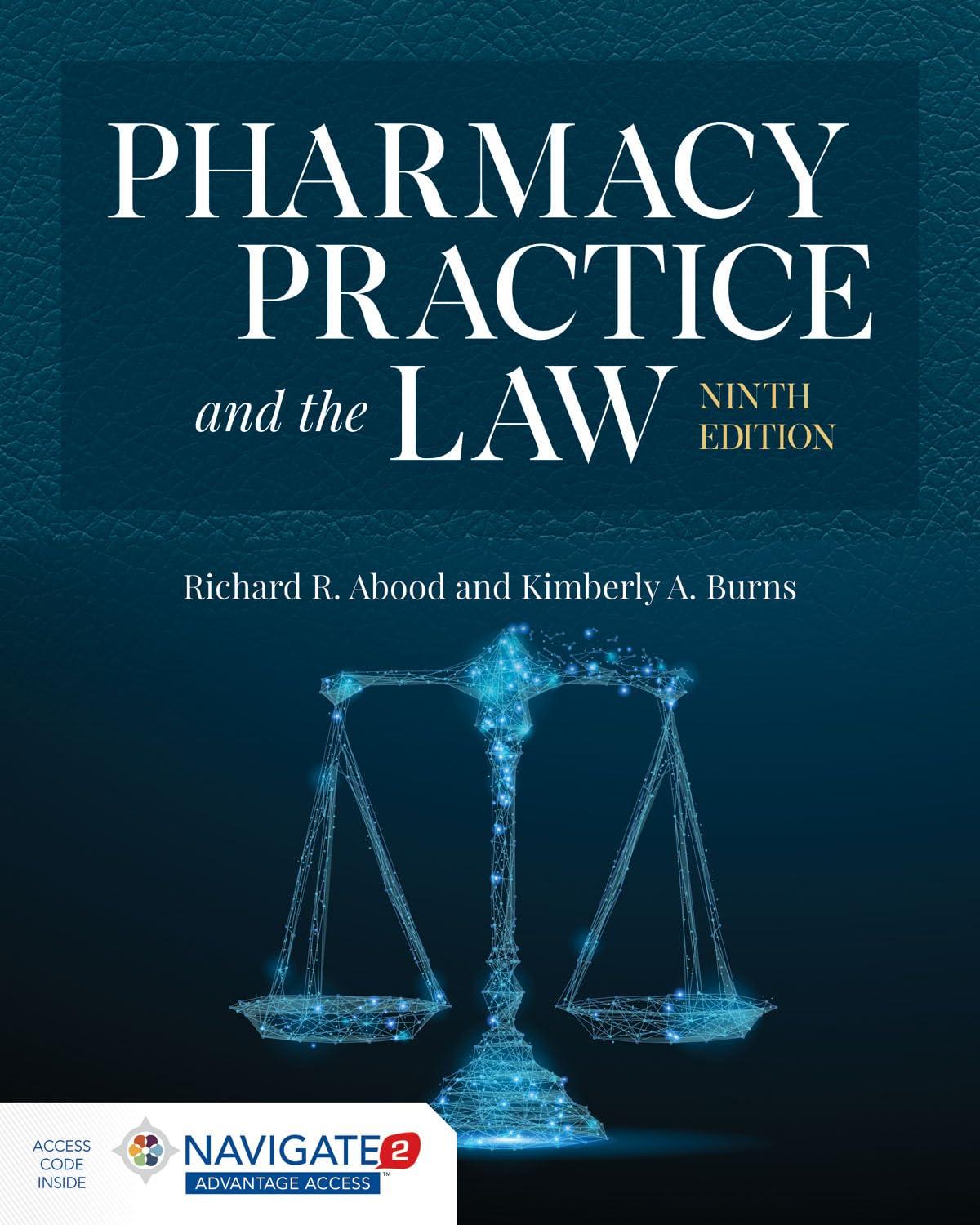The PTRA facilitated the marketing of generic drugs by allowing generic drug sponsors to file ANDAs rather
Question:
The PTRA facilitated the marketing of generic drugs by allowing generic drug sponsors to file ANDAs rather than NDAs. This case provides additional insight into the procedures followed by the FDA to determine if a product is similar enough to the parent drug such that the sponsor may file an ANDA. The plaintiff, Pfizer, contends that the products are not similar enough and, of course, has the ulterior motive of restraining competition. At issue in this case is whether two drug products can be considered generically equivalent if the manner in which they release the active ingredient is substantially different. This is a controversial issue with drug manufacturers because dosage form technology has advanced tremendously in the past few years.
As you read this case, ask yourself: Is the FDA’s position correct?
The FDA is essentially saying that the means in which the generic product releases the active ingredient in the body is irrelevant, as long as the generic drug product establishes bioequivalence to the parent drug. In other words, the end is more important than the means. Is there a public health problem with this interpretation?
Also, consider what the effect on generic competition would be if Pfizer’s position is correct. Would companies just continually redesign the dosage forms of their products to subvert competition?
Finally, if Pfizer’s position is rejected, what effect will this have on the science of dosage form design?
Will companies have any market incentive to expend money on innovative dosage form technology if competitor products without the technology are deemed generically equivalent?
Step by Step Answer:

Pharmacy Practice And The Law
ISBN: 9781284154979
9th Edition
Authors: Richard R. Abood, Kimberly A. Burns





